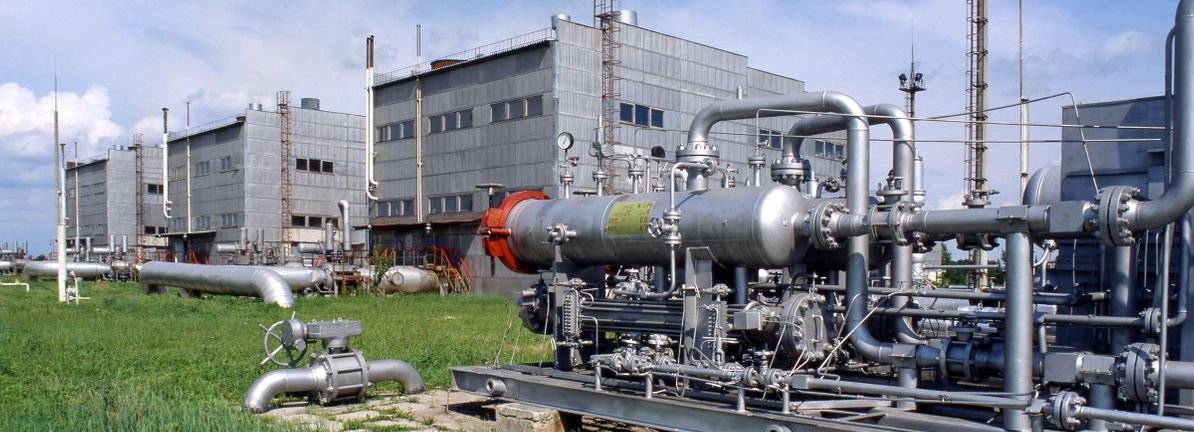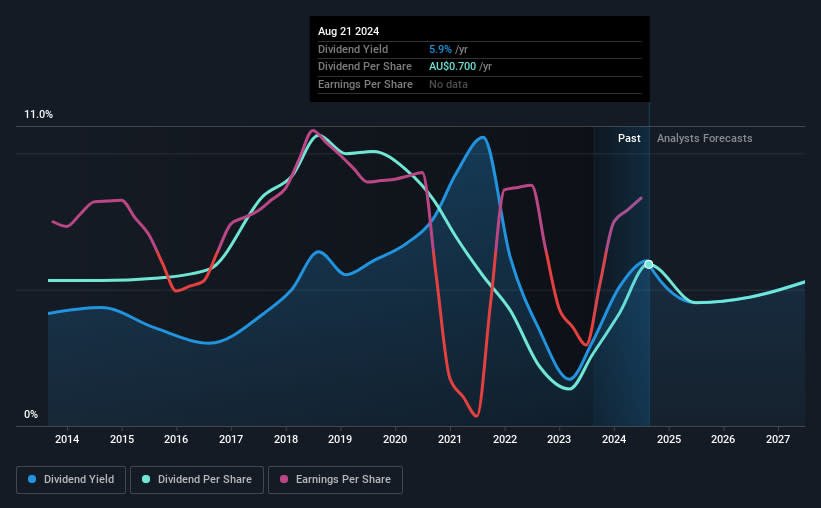AGL Energy Limited (ASX:AGL) stock is about to trade ex-dividend in 4 days. The ex-dividend date is one business day before the record date, which is the cut-off date for shareholders to be present on the company’s books to be eligible for a dividend payment. The ex-dividend date is an important date to be aware of as any purchase of the stock made on or after this date might mean a late settlement that doesn’t show on the record date. Accordingly, AGL Energy investors that purchase the stock on or after the 27th of August will not receive the dividend, which will be paid on the 24th of September.
The company’s next dividend payment will be AU$0.35 per share, on the back of last year when the company paid a total of AU$0.70 to shareholders. Last year’s total dividend payments show that AGL Energy has a trailing yield of 5.9% on the current share price of AU$11.80. Dividends are a major contributor to investment returns for long term holders, but only if the dividend continues to be paid. That’s why we should always check whether the dividend payments appear sustainable, and if the company is growing.
See our latest analysis for AGL Energy
Dividends are usually paid out of company profits, so if a company pays out more than it earned then its dividend is usually at greater risk of being cut. AGL Energy paid out 58% of its earnings to investors last year, a normal payout level for most businesses. Yet cash flows are even more important than profits for assessing a dividend, so we need to see if the company generated enough cash to pay its distribution. Luckily it paid out just 24% of its free cash flow last year.
It’s positive to see that AGL Energy’s dividend is covered by both profits and cash flow, since this is generally a sign that the dividend is sustainable, and a lower payout ratio usually suggests a greater margin of safety before the dividend gets cut.
Click here to see the company’s payout ratio, plus analyst estimates of its future dividends.
Have Earnings And Dividends Been Growing?
Companies with falling earnings are riskier for dividend shareholders. If earnings fall far enough, the company could be forced to cut its dividend. Readers will understand then, why we’re concerned to see AGL Energy’s earnings per share have dropped 5.2% a year over the past five years. Such a sharp decline casts doubt on the future sustainability of the dividend.
Another key way to measure a company’s dividend prospects is by measuring its historical rate of dividend growth. AGL Energy has delivered 1.1% dividend growth per year on average over the past 10 years.
The Bottom Line
From a dividend perspective, should investors buy or avoid AGL Energy? We’re not enthused by the declining earnings per share, although at least the company’s payout ratio is within a reasonable range, meaning it may not be at imminent risk of a dividend cut. Overall we’re not hugely bearish on the stock, but there are likely better dividend investments out there.
However if you’re still interested in AGL Energy as a potential investment, you should definitely consider some of the risks involved with AGL Energy. Every company has risks, and we’ve spotted 1 warning sign for AGL Energy you should know about.
A common investing mistake is buying the first interesting stock you see. Here you can find a full list of high-yield dividend stocks.
Have feedback on this article? Concerned about the content? Get in touch with us directly. Alternatively, email editorial-team (at) simplywallst.com.
This article by Simply Wall St is general in nature. We provide commentary based on historical data and analyst forecasts only using an unbiased methodology and our articles are not intended to be financial advice. It does not constitute a recommendation to buy or sell any stock, and does not take account of your objectives, or your financial situation. We aim to bring you long-term focused analysis driven by fundamental data. Note that our analysis may not factor in the latest price-sensitive company announcements or qualitative material. Simply Wall St has no position in any stocks mentioned.








